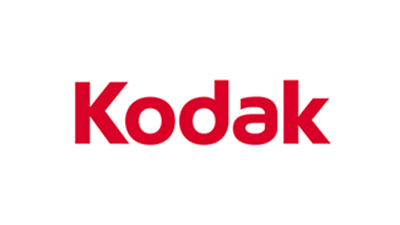
-
Report ID 138083 -
Published Date June 2023 -
Delivery Format PDF/PPT/Word -
Editor's Rating
-
Report Details
Market Overview
The global generative AI in manufacturing market is expected to grow significantly over the forecast period from 2023 to 2032. The market size is projected to increase from USD 223.4 million in 2022 to approximately USD 6,398.8 million by 2032. This indicates a compound annual growth rate (CAGR) of 41.06% during the specified period. The growth of this market is being driven by the increasing adoption of AI in manufacturing, the rising demand for personalized products, and the need to improve operational efficiency.
What’s New?
- In 2022, Siemens announced that it was investing $1 billion in AI research and development.
- In 2023, General Electric announced that it was creating a new AI-focused division.
- In 2024, Microsoft announced that it was acquiring Generative AI startup Bonsai.
For more insights on the generative AI in manufacturing market share of various regions- Download a Sample Report
Key Takeaways
- The Generative AI in Manufacturing Market is being driven by the increasing adoption of AI in manufacturing. AI is being used to automate tasks, improve decision-making, and optimize processes.
- The rising demand for personalized products is also driving the growth of this market. AI can be used to create personalized products that meet the specific needs of customers.
- The need to improve operational efficiency is another factor driving the growth of this market. AI can be used to improve efficiency by optimizing production, reducing waste, and improving quality.
Note – The number might vary in the actual report
Demand and Trend
- The demand for Generative AI in Manufacturing is increasing due to the following trends:
- The rising adoption of Industry 4.0
- The growing need for personalized products
- The increasing focus on operational efficiency
Factors Affecting the Growth
The following factors are expected to affect the growth of Generative AI in Manufacturing Market:
- The high cost of implementing AI solutions
- The lack of skilled professionals to implement and manage AI solutions
- The security and privacy concerns associated with AI
For additional information on the market contribution of each segment – Grab an Exclusive Sample Report
Largest and Fastest Growing Market
The largest market for Generative AI in Manufacturing is the Asia Pacific region. The fastest-growing market is the North America region.
Key Players
- SAP SE
- IBM Corporation
- Microsoft Corporation
- Alphabet Inc.
- Siemens AG
- General Electric Company
- Autodesk Inc.
- NVIDIA Corporation
- Cisco Systems Inc.
- Oracle Corporation
- Other Key Players
Market Dynamics
Drivers
- Increasing adoption of AI in manufacturing
- Rising demand for personalized products
- Need to improve operational efficiency
Restraints
- High cost of implementing AI solutions
- Lack of skilled professionals to implement and manage AI solutions
- Security and privacy concerns associated with AI
Opportunities
- Growing demand for AI-powered solutions in manufacturing
- Increasing investments in AI research and development
- Rise of startups and new entrants in the AI market
Challenges
- Lack of awareness about AI in manufacturing
- High cost of implementing AI solutions
- Lack of skilled professionals to implement and manage AI solutions
- Security and privacy concerns associated with AI
Play a larger role in
The following are the areas where Generative AI is expected to play a larger role in the future:
- Product design and development
- Production planning and optimization
- Quality control
- Supply chain management
Market Segmentation
Based on Application
- Product Design
- Prototyping
- Quality Control
- Predictive Maintenance
- Supply Chain Optimization
- Other Applications
Based on Deployment
- On-premises
- On the Cloud
Based on Industry Vertical
- Automotive
- Aerospace
- Electronics
- Consumer Goods
- Other Industry Verticals
Key Regions
- North America
- The US
- Canada
- Mexico
- Western Europe
- Germany
- France
- The UK
- Spain
- Italy
- Portugal
- Ireland
- Austria
- Switzerland
- Benelux
- Nordic
- Rest of Western Europe
- Eastern Europe
- Russia
- Poland
- The Czech Republic
- Greece
- Rest of Eastern Europe
- APAC
- China
- Japan
- South Korea
- India
- Australia & New Zealand
- Indonesia
- Malaysia
- Philippines
- Singapore
- Thailand
- Vietnam
- Rest of APAC
- Latin America
- Brazil
- Colombia
- Chile
- Argentina
- Costa Rica
- Rest of Latin America
- Middle East & Africa
- Algeria
- Egypt
- Israel
- Kuwait
- Nigeria
- Saudi Arabia
- South Africa
- Turkey
- United Arab Emirates
- Rest of MEA
FAQs
Q1. What is Generative AI?
Generative AI is a type of artificial intelligence that can create new data that is similar to the data it has been trained on. This can be used in a variety of ways in manufacturing, such as generating new product designs, optimizing production processes, and improving quality control.
Q2. How does Generative AI work?
Generative AI uses machine learning algorithms to learn the patterns in existing data. Once the algorithm has learned these patterns, it can use them to generate new data that is similar to the data it was trained on.
Q3. What are the benefits of using Generative AI in manufacturing?
Generative AI can offer a number of benefits for manufacturing companies, including:
-
- Increased productivity: Generative AI can be used to automate tasks such as product design, production planning, and quality control. This can free up employees to focus on other tasks, such as innovation and customer service.
- Improved quality: Generative AI can be used to identify and correct defects in products before they are shipped to customers. This can help to improve customer satisfaction and reduce the number of returns.
- Reduced costs: Generative AI can help to reduce costs by automating tasks, improving quality, and reducing waste.
Q4. What are the challenges of using Generative AI in manufacturing?
There are a few challenges that manufacturing companies may face when using generative AI, including:
- Data collection: Generative AI requires large amounts of data to train the algorithms. This data can be difficult and expensive to collect.
- Data quality: The quality of the data used to train the algorithms is critical to the performance of the generative AI system. If the data is not accurate or complete, the system may not be able to generate accurate or useful results.
- Technical expertise: Generative AI is a complex technology that requires specialized skills to implement and use. Manufacturing companies may need to hire or train employees with the necessary skills.
Q5. What is the future of Generative AI in manufacturing?
Generative AI is a rapidly developing technology with the potential to revolutionize manufacturing. As the technology continues to mature, we can expect to see even more innovative applications of generative AI in manufacturing.
-
Table Of Content
Research Insights & Deliverables
 Development and Future Forecast
Development and Future Forecast Competitive benchmarking
Competitive benchmarking Company Revenue Statistics
Company Revenue Statistics Rising Regional Opportunities
Rising Regional Opportunities Technology Trends and Dynamics
Technology Trends and Dynamics Technology Assessment
Technology Assessment
-
Inquiry Before Buying
Research Insights & Deliverables
 Development and Future Forecast
Development and Future Forecast Competitive benchmarking
Competitive benchmarking Company Revenue Statistics
Company Revenue Statistics Rising Regional Opportunities
Rising Regional Opportunities Technology Trends and Dynamics
Technology Trends and Dynamics Technology Assessment
Technology Assessment
-
Request Sample
Research Insights & Deliverables
 Development and Future Forecast
Development and Future Forecast Competitive benchmarking
Competitive benchmarking Company Revenue Statistics
Company Revenue Statistics Rising Regional Opportunities
Rising Regional Opportunities Technology Trends and Dynamics
Technology Trends and Dynamics Technology Assessment
Technology Assessment














